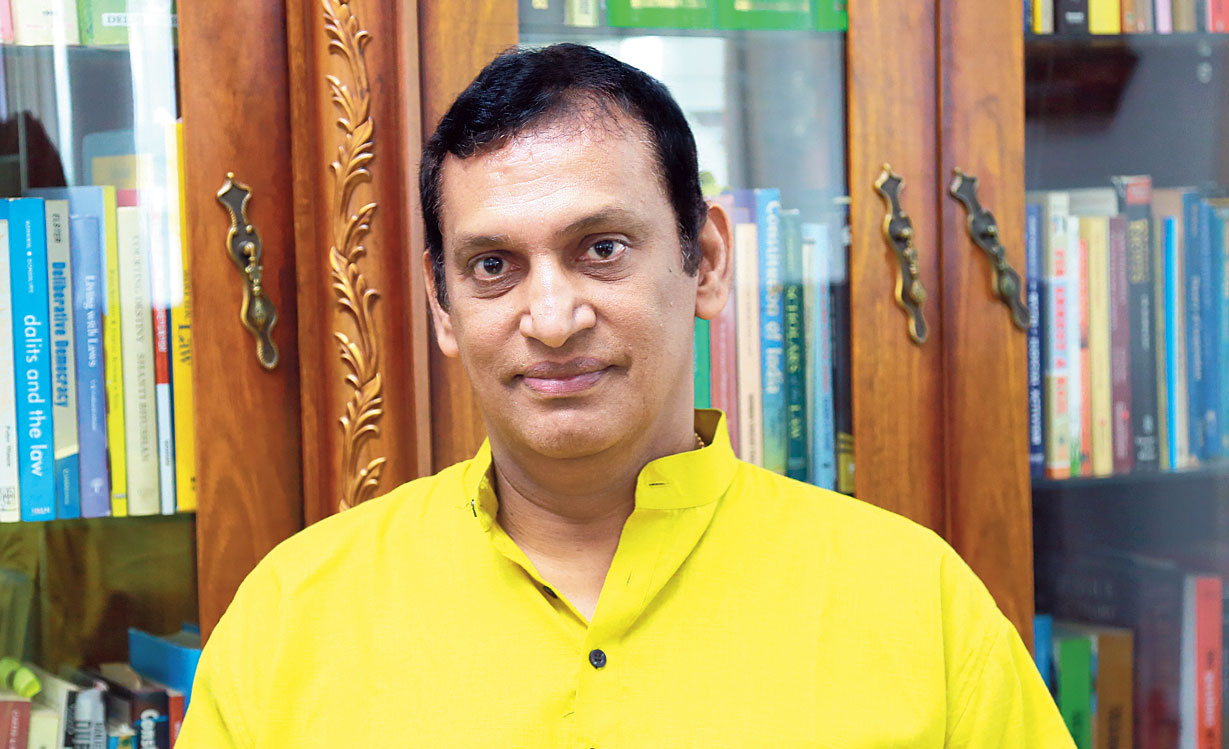A senior Supreme Court lawyer has said the apex court’s decision to appoint a committee to talk to the anti-CAA protesters at Shaheen Bagh with an aim to relocate them is tantamount to taking up an executive role and doing something the government should have done.
Lawyer Kaleeswaram Raj also said the Supreme Court had failed to “exercise its dharma” when confronted with significant issues like the demolition of Babri Masjid, demonetisation, Kashmir, arrests of activists and misuse of CrPC Section 144, adding that the top court had not been able to “act as the guardian of the Constitution” and now people had started “re-constitutionalisation” through protests on the streets.
“The efforts for talks with the Shaheen Bagh protesters initiated by the Supreme Court shows the top court converting itself from a constitutional court to an executive court,” Raj told The Telegraph on Tuesday.
“The court is not an extension of the executive, nor its substitute. It has to act as the umpire of democracy,” he said. “Going by the constitutional scheme, what is contemplated is judicial review of executive and legislative actions and inactions. That is the dharma of a constitutional court.”
The apex court has appointed a committee headed by senior lawyer Sanjay Hegde and having as members former central information commissioner Wajahat Habibullah and lawyer Sadhna Ramachandran and given them a week to hold discussions with the Shaheen Bagh protesters whose vigil has crossed 60 days.
“I have high regard for the credentials of Sanjay Hegde, who is probably the best person to head this committee as he is a truly secular person. But talking to the protesters is the job of the government,” Raj said.
Let alone speaking to the protesters, many BJP leaders including Amit Shah and Narendra Modi have targeted and vilified those at Shaheen Bagh.
After incendiary slogans like “Desh ke gaddaron ko, goli maaro…”, shots have been fired at the vigil.
The Supreme Court bench of Justices Sanjay Kishan Kaul and K.M. Joseph is hearing petitions seeking the eviction of the protesters.
Raj made it clear that he is not saying the court should not have assigned the task to the committee. “Nevertheless, one cannot be so euphoric about it when you look at the larger and more fundamental function of the Supreme Court.”
What was more crucial was the role of the top court in handling serious matters such as demonetisation and the abrogation of Jammu and Kashmir’s special status.
“The top court, however, failed to exercise its dharma when confronted with significant issues like demonetisation, Kashmir, arrest of activists, misuse of CrPC Section 144 and massive murder of protesters on the streets,” said Raj, who is also a columnist on legal matters.
While there has been many a debate across the democratic world about the need to separate the legislature from the judiciary, Raj clarified that was not the point he was making.
“I am talking about the functional part of the court rather than legality. Of course, the Supreme Court can do a lot. In extreme cases, Article 142 of the Constitution empowers it to pass any kind of orders for doing complete justice,” he said.
“The Supreme Court has failed to do what it should have done even in some of the critical phases the country has come across. If you look at it deeply, enforcing CrPC Section 144 in many cities recently had the effect of invoking Article 352 of the Constitution dealing with Emergency. Only that an Emergency was not officially declared,” Raj said, highlighting the impact of prohibitory orders to thwart those protesting against the Citizenship (Amendment) Act, National Register of Citizens and the National Population Register.
Section 144 prohibits the gathering of five or more persons.
Raj highlighted instances when judicial intervention could have saved the country and its people from major catastrophes.
“Had there been a timely judicial intervention after demonetisation, the country’s economic history would have been different. When secularism was in peril in the Babri Masjid episode, the court came out with an un-secular and anti-secular verdict.”
The Supreme Court has allotted the entire disputed land in Ayodhya for the construction of a Ram temple although it accepted that the destruction of the mosque in 1992 was against the rule of law.
“Despite the apparent violence done to the secular ethos by the CAA, the court allowed the statute to remain, perpetuating anxieties in the minds of millions,” Raj said.
“Demonetisation was the first. Then we had motivated legislation like the one against (instant) triple talaq. Next came CAA. The de-constitutionalisation started with demonetisation. We then moved to the phase of criminalising (instant) triple talaq, which is a statute aimed at a particular religion. Now, the people who protest on the streets have started re-constitutionalisation,” Raj said.
“The people are re-constitutionalising the country. And that is the significance of the ongoing protests. The Constitution is growing up from across the streets as the people raise their voice,” he added.
Raj said the judiciary could not even act as the “guardian of the Constitution when leaders and activists across the country were arrested and detained. This is a sad commentary on the world’s most powerful Supreme Court.”
“Therefore, the reconciliatory role now adopted by the court in the Shaheen Bagh context needs to be critically deliberated across the country,” Raj insisted.
“This reconciliatory approach becomes a kind of new judicial norm which is very disturbing for our democracy. Prima facie one may feel it is comforting, but it is not. This may even leave dangerous ramifications for democracy, as the court cannot act as the legislature or executive,” he added.











